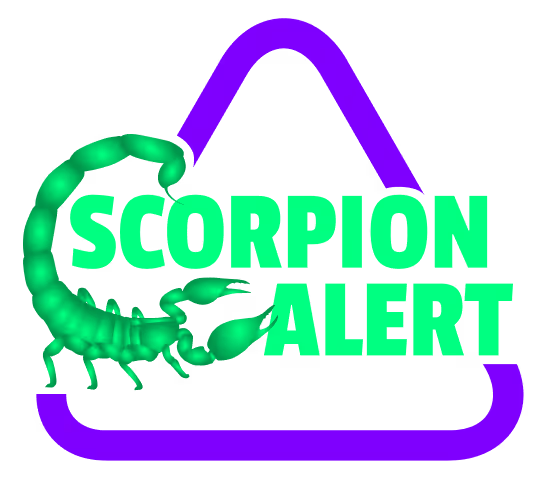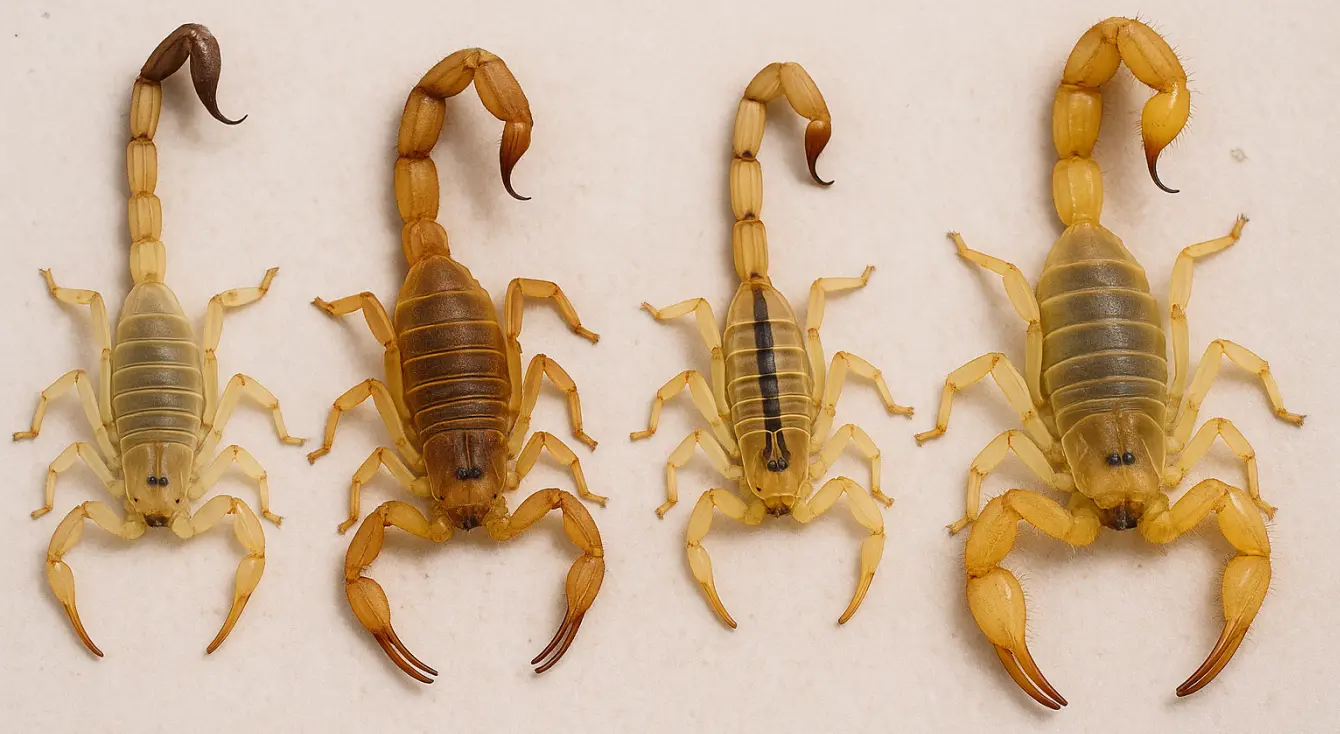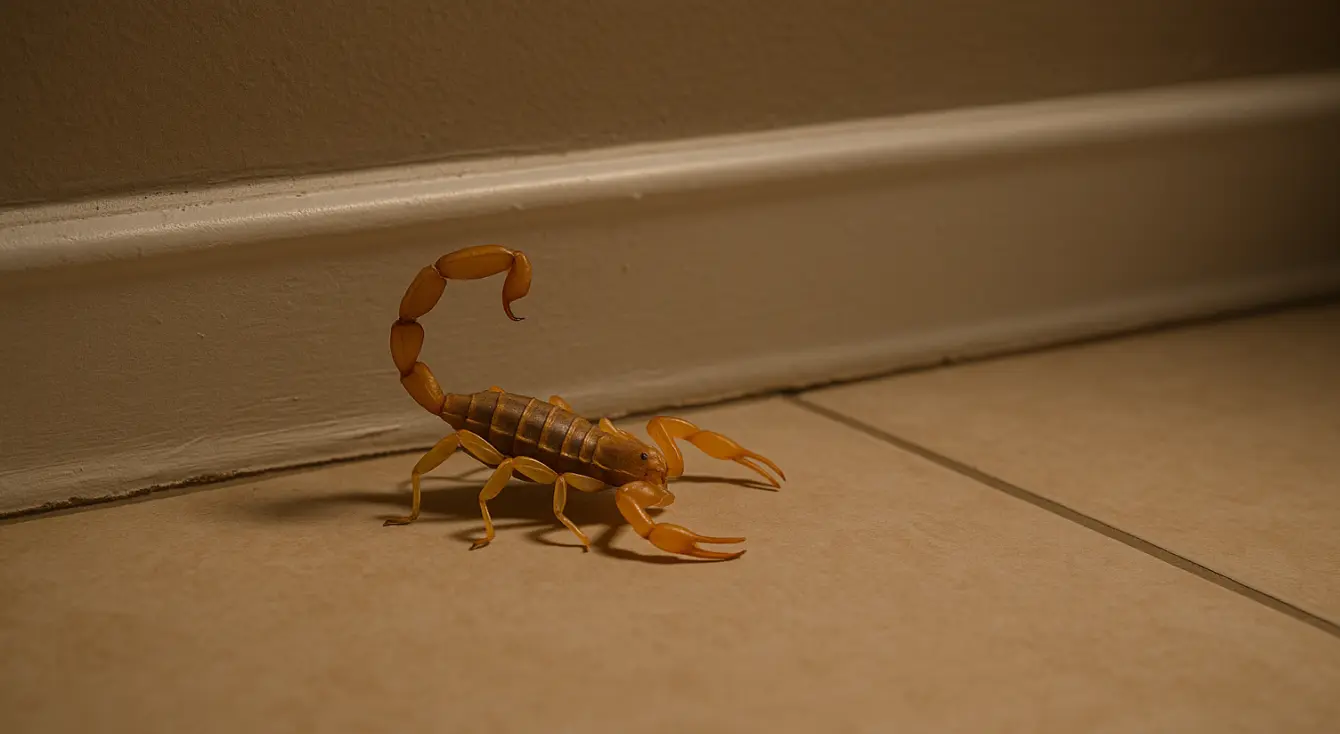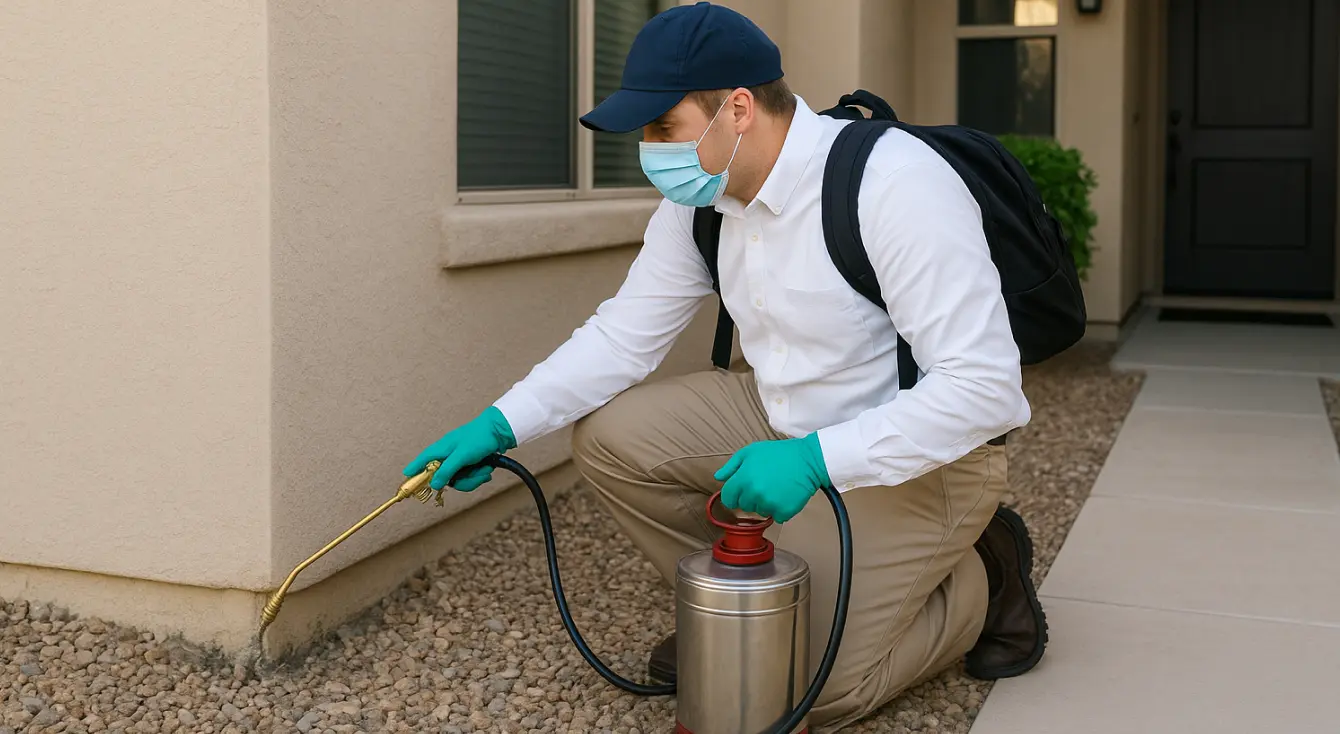If you’ve found a scorpion inside your house, your first instinct is probably: Is it dangerous? The answer depends on the species. While most U.S. scorpions aren’t life-threatening, there’s one you definitely want to watch out for.
Here’s how to tell what kind of scorpion you’re dealing with—and whether it’s time to be concerned.
1. The Big One: Arizona Bark Scorpion
The Arizona bark scorpion (Centruroides sculpturatus) is the only scorpion in the U.S. considered dangerously venomous. Its sting can cause severe reactions, especially in kids and older adults.
How to identify it:
- Light tan color with a slightly darker back
- Slender body and tail
- Thin pincers (a key distinction)
- Typically 2.5 to 3 inches long
- Can climb walls and ceilings
2. Striped Bark Scorpion
Very common in Texas, including Austin, the striped bark scorpion (Centruroides vittatus) is the one most homeowners encounter in central and east Texas. It’s mildly venomous.
How to identify it:
- Yellow-tan body with two dark stripes down the back
- Thin pincers and tail
- About 2 to 3 inches in length
- Good climbers—may be found on walls and ceilings
While its sting is painful, it’s not considered medically significant for most healthy adults. Still, reactions can be stronger in children or those with sensitivities.
3. Stripedtail Scorpion
Common across Arizona, New Mexico, and parts of West Texas, the stripedtail (Paravaejovis spinigerus) is less harmful to humans and prefers dry, rocky areas.
How to identify it:
- Brown body with faint stripes on the back
- Bulkier pincers than bark scorpions
- Grows up to 2.5 inches
- Ground-dweller, rarely climbs
4. Giant Hairy Scorpion
The largest scorpion in the U.S., the giant hairy scorpion (Hadrurus arizonensis) looks intimidating but is not considered dangerous.
How to identify it:
- Yellow body with a darker back
- Covered in noticeable dark hairs
- Thick tail and pincers
- Can grow over 5 inches long
Found in desert areas, it occasionally wanders into garages or sheds but rarely comes indoors.
5. Lesser Stripetail Scorpion
Often confused with the stripedtail, the lesser stripetail (Paravaejovis confusus) is another harmless species found in desert and rocky environments.
How to identify it:
- Light tan to brown body
- Less distinct striping
- Small, typically under 2 inches
- Prefers staying outdoors
Use UV Light To Help With ID
Scorpions glow bright green or blue under UV light, which makes spotting them at night much easier. But some details become harder to see in the glow.
If you’ve received an alert from one of our Scorpion Detectors and want to confirm the species, use your UV flashlight to locate it, then carefully examine:
- Pincer size and shape
- Color and striping
- Tail thickness
- Behavior (climbing vs. crawling)
Snap a picture with your phone (without flash) and compare it to images from trusted sources like your local university extension or pest control agency.
When In Doubt, Get Expert Help
If you’re unsure about the type of scorpion—or just don’t want to get close enough to check—it’s smart to call a pest control expert. Many exterminators in Arizona and Texas specialize in scorpion identification and removal.
Knowing what kind of scorpion is in your home helps you gauge the risk and decide what action to take. Our Scorpion Detectors give you an early warning, but species ID adds an extra layer of awareness—so you’re never caught off guard.






